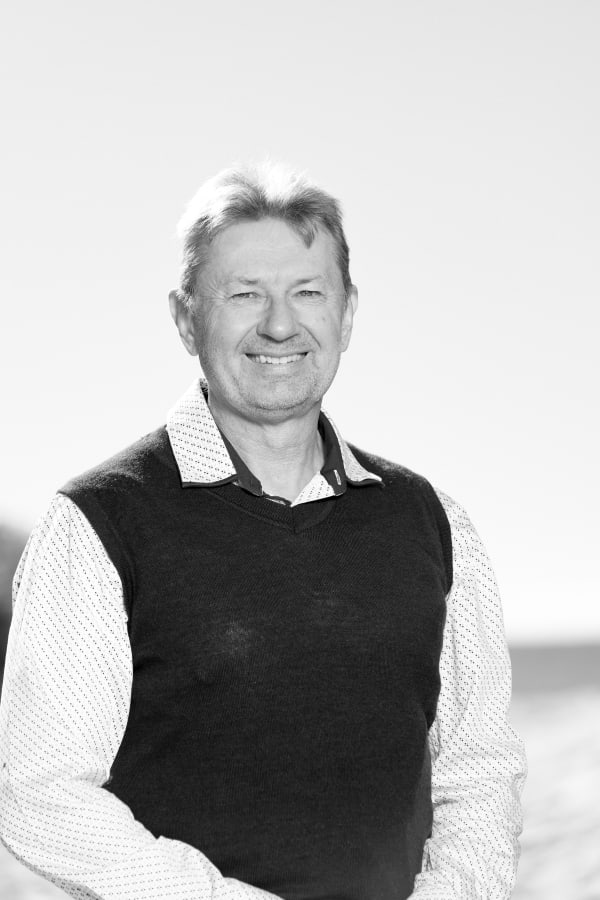Energy Explained: Why should we ‘electrify everything’?
Ty Christopher, Director of the Energy Futures Network at the University of Wollongong, shares his thoughts on calls to ‘electrify everything’ by Rewiring Australia, the organisation started by Austinmer engineer Dr Saul Griffith. Do you support...

Ty Christopher, Director of the Energy Futures Network at the University of Wollongong, shares his thoughts on calls to ‘electrify everything’ by Rewiring Australia, the organisation started by Austinmer engineer Dr Saul Griffith.
Do you support the calls to ‘electrify everything’?
Vehemently. A huge potential solution for decarbonising our lives here is to move our urban living onto a more sustainable footing. And we are a heavily urbanised society here in Australia. One of the good things about our urbanised society – that is, by and large, dominated by very low-density individual homes – is it creates a hugely valuable asset. That's all the roofs.
The Rewiring Australia agenda has at its absolute core, taking our residential life, our urban life to a carbon-neutral position through local generation, local storage and local recycling of the money we spend on energy.
If we start electrifying, we start generating enough power in our suburbs, not just to decarbonise our homes through electrifying everything there, but also through decarbonising our personal transport, charging our electric vehicles and the like.
Then, we start to take all of this money that is being paid to electricity gentailers, many of whom pay very low amounts of tax in Australia and we pump it back into the local suburbs where we live. It's the same with all the fossil fuel companies that we're paying for the gas in our homes and fuel in our cars. If we electrify our transport and then charge our vehicle from locally generated solar electricity, we are recycling millions of dollars of money back into our local area, not sending overseas to big fossil fuel companies.
If, instead of being shipped overseas, all of that money was actually recirculating locally because we're generating the power locally, we're charging ourselves, our own local tradespeople are getting work to maintain this local energy ecosystem, then we actually divert millions and millions of dollars per year in each and every suburb, in each and every area to be circulating within that local economy as opposed to going to pay the profits of large multinationals.
I sound like a rabid socialist when I say all of this, but just think of what it could do to be circulating millions more money for the local economies of our residential suburbs up and down the Illawarra here, or all over Australia.
That's at an economic level, what home electrification on a widespread basis and what more energy control means. I use the word ‘control’ rather than 'autonomy’ because there's still going to be a need for interconnection and shared grid and these sorts of things here, but, from the traditional sense, I call it more of a ‘grid light’ solution than anything else.
If solar's so good, why can’t the Illawarra run on sun?
You will still need large renewable energy to be generated.
You can't supply the Wollongong CBD from solar panels on homes. You can't supply the steelworks from solar panels on homes.
Let's use an example. The steelworks currently uses the same amount of power as roughly 120,000 homes per day. BlueScope Steel have said that to electrify their current production to decarbonise, it would take a 15 times uplift in their electricity use from where it is now. So that would mean their electricity use would be – in round numbers – the equivalent of 1,800,000 homes. Now, there’s only about 130,000-odd homes in the whole of the Illawarra.
So what we see with the discussion around solar and energy is, again – no silver bullet, only silver buckshot. Small energy generation from roof top solar and small energy use in our homes are a perfect match.
But, we also need big energy generation for big energy use, such as making steel, making aluminium, and other large industry, such as running a port, running a city. You'll never supply large heavy industry with home solar panels.
In a total energy ecosystem mindset, you need big generation to do the big stuff and you need small generation to cover the small stuff, and it's a solution where the different electricity sources each play a part where they're best able to do so. That gives us the best overall result.
This is why things like offshore wind is needed – because we need that multi-gigawatt scale energy nearby to where it's going to be needed and with a high availability, so that it's there to serve industry when they need to draw down on it.
Ultimately though, why I'm such a passionate advocate for home electrification and local energy use is because the more we use small generators to supply our small energy needs, we also minimise the amount of big energy solutions which will also be needed.
We're seeing all of this debate, quite reasonably, with people being stridently opposed to new power lines being built across where they live out in the renewable energy zones in Western New South Wales and Northern NSW and other areas across Australia.
Well, for every suburb that took itself to be all electric and generated nearly all of its own electricity locally, that's less power lines you need to build out west to connect more wind farms and solar farms and big batteries in the remote areas of Australia, because when a suburb supplies its own electricity there is no longer a need to transport the power through the big fat power lines tout West to get the power to where it's needed where we all live along the coast here.
So there's an extra benefit that flows from local generation and local solar here.
And that is, it minimises or reduces the magnitude of the big energy solutions that you are also going to need anyway. Everything plays to its own strength.
So you can be a city person doing your bit for the farmers by electrifying your home, so we need fewer transmission lines?
Exactly.
Free Electric Ideas webinar
Want to learn more about electrifying our homes, cars and communities? Rewiring Australia is hosting a free Electric Ideas webinar at noon on Friday, August 16. Featuring Sarah Aubrey, an EV and electrification advocate, and Brendan Lang, an electrician and the founder of Get Off Gas, in conversation with Rewiring's Kristen McDonald. Register here.

Ty Christopher, Endeavour Energy’s former ‘chief engineer’, is an electrical engineer who brings 37 years of hands-on experience in the power supply industry to his current role as Director of the Energy Futures Network at the University of Wollongong.
Read more Energy Explained articles
- Should you put rooftop solar on your home?
- The case for home and community batteries
- Electricity Regulation – Kicking goals or killing time before the bell?
- The hidden cost in your electricity bill
- Why restructuring the market may save you money
- Why should we 'Electrify Everything' – and why can't Wollongong run on sun?
- How much power can solar actually deliver?





